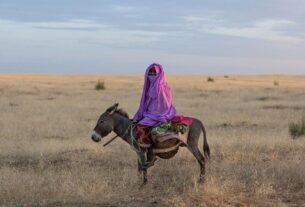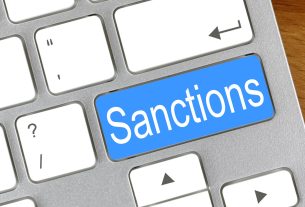Africa’s Escalating Crises: Key Developments and Humanitarian Impact
Across Africa, recent events underscore a continent grappling with escalating conflicts, humanitarian disasters, and shifting geopolitical alliances.
Sudan: Escalating Violence Amid Civil War
In Sudan’s North Kordofan region, a suspected drone strike on a prison in Obeid resulted in at least 20 inmate fatalities and 50 injuries. The Rapid Support Forces (RSF), a paramilitary group, are believed to have conducted the attack, intensifying their campaign against military-held areas. This incident is part of a broader conflict that has led to over 24,000 deaths and displaced approximately 13 million people since April 2023 .(AP News)
In Darfur, an RSF airstrike on the Abu Shouk displacement camp killed 14 people from the same family. The camp, near El-Fasher, has been a refuge for those fleeing ongoing violence and famine .
Burkina Faso: Civilian Massacre and Regional Instability
Human Rights Watch reports that between late February and early April 2025, Burkina Faso’s government forces and allied militias killed at least 100 civilians, primarily from the Fulani ethnic group, near Solenzo. These killings have exacerbated ethnic tensions and led to retaliatory attacks by jihadist groups, further destabilizing the region .(AP News)
Concurrently, President Ibrahim Traoré’s government is seeking stronger military and scientific ties with Russia, moving away from traditional Western alliances. This shift reflects a broader trend of African nations strengthening relations with Russia amid global geopolitical realignments.
Mali: Political Repression and Economic Challenges
In Mali, opposition leaders Abba Alhassane and El Bachir Thiam have been abducted by masked gunmen, raising concerns about political repression under the military junta. The junta has also suspended political party activities, citing public order concerns .
Economically, Mali faces a significant debt crisis, owing over $94 million to SOGEM, the entity managing the Manantali dam, which supplies electricity to Mali, Senegal, and Mauritania. This debt threatens the dam’s operations and could exacerbate existing power shortages .(Reuters)
Nigeria: Security Measures and Political Developments
In Nigeria’s Borno State, authorities have banned the sale of petrol to curb insurgent mobility amid a resurgence of militant attacks. This measure aims to disrupt the logistics of groups like the Islamic State West Africa Province (ISWAP) operating in the region.
Meanwhile, northern Nigerian leaders are advocating for the establishment of state police forces to address regional security challenges more effectively. This proposal reflects a push for localized security solutions in the face of growing threats.
Somalia: Natural Disasters and Humanitarian Impact
Heavy rains in Mogadishu have caused severe flooding, resulting in at least seven deaths and displacing over 200 families. The floods have damaged infrastructure, including roads and homes, and overwhelmed the city’s drainage systems .(AP News)
Democratic Republic of Congo: Devastating Floods in South Kivu
In eastern Congo, torrential rains have led to devastating floods, particularly in Kasaba village, South Kivu province. At least 62 people have been confirmed dead, with 50 others missing. Rescue operations are hindered by communication breakdowns and damaged infrastructure .(AP News)
Ethiopia: Press Freedom Under Threat
Ethiopia is experiencing a renewed crackdown on journalists, with recent arrests and raids on media outlets like Addis Standard. The government has labeled critical reporting as support for terrorism, leading to a climate of fear among the press ahead of the 2026 general elections .(The Guardian)
Africa’s Geopolitical Shifts: Russia’s Growing Influence
Several African nations, including Mali, Burkina Faso, and the Central African Republic, are strengthening ties with Russia, moving away from traditional Western alliances. This shift is part of a broader strategy by Russia to expand its influence in Africa through military cooperation and economic partnerships .
Recent News Highlights:



